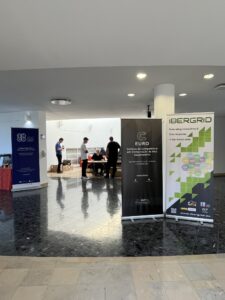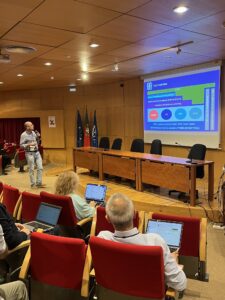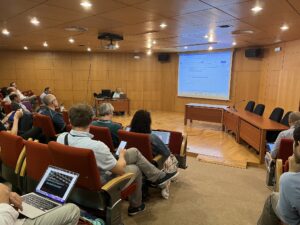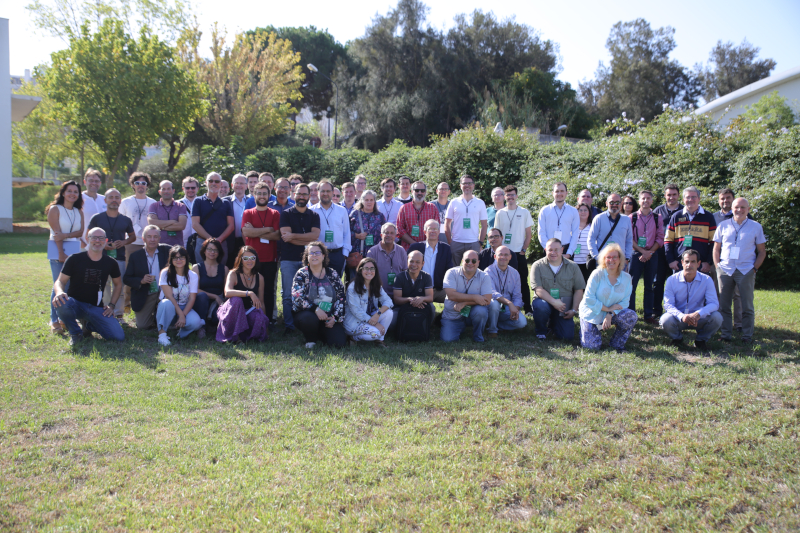Two years and a pandemic later, the project that unites Portugal and Spain in the coordination of scientific applications, distributed computing infrastructures, cloud computing and data repositories, has returned. This time, to the south of the country, for four days, for the 11th edition of the IBERGRID conference.
In 2019, the conference had headed to Santiago de Compostela – where the first edition had been held, in 2007 – but, for this year, it was in Faro that specialists from the most diverse areas concentrated to share experiences, knowledge and strengthen the connections of this common plan.
On October 10th, between registrations, greetings and reunions, the auditorium of the University of Algarve, at the Penha Campus, was getting more and more crowded for the beginning of the conference. The day was dedicated to the EOSC universe – the European Open Science Cloud – whose mission is to support scientific research in the European Union, guaranteeing the hosting and processing of data. Thus, researchers, companies and citizens were (and are) invited to explore this universe of services and communities.

The afternoon was marked by the first parallel sessions, in which workshops were held that divided the audience between a more theoretical and a more practical component.
The morning of the second day – still marked by the arrival of many participants – was dedicated to plenary sessions that illustrated the two main actors of IBERGRID. Jorge Gomes, from LIP, was in charge of presenting the National Infrastructure for Distributed Computing and its activities, as well as its role in this Iberian project. The CSIC – Spanish National Research Council – and the work that is developed there was also presented. In simple terms, this infrastructure can be seen as the twin sister of INCD, but acting in Spain.

After lunch, with energies already restored, the dilemma of which of the sessions was, again, present in the minds of the participants, since the afternoon would be composed of theoretical sessions and workshops. With two auditoriums well constituted, the hours were spent in presentations of various works to be developed with the support of IBERGRID and, in the next room, the attentions were focused on the practical part presented by LifeWatch ERIC.
This day was also marked by the conference dinner, which was held late at night on the beach in Faro.
The third and fourth day were essentially marked by the numerous contributions of the partners involved in IBERGRID that are spreading a little across Europe. Besides the Iberian circle, representatives from DESY – the national research center in Germany -, INFN – the Italian national institute for nuclear physics -, and, among others, CESNET – the Czech Republic’s dedicated science and research infrastructure – were heard.

The presentations of partners and case studies in the most diversified areas – health, cybersecurity, agriculture and, among others, space sciences – and in which computing plays a fundamental role, were also extended throughout the last day, alternated with sessions dedicated to Digital Twins.
“Innovation” was the watchword on all four days, but quantum computing also took the stage during IBERGRID.
Isabel Campos, CSIC’s representative and IBERGRID’s representative in Spain, closed four days of knowledge sharing and experience exchange with the announcement that IBERGRID 2023 already has place and days scheduled. The conference will return to Spanish territory between September 25 and 29, 2023, and will take place at the Science Center of Benasque, in the Pyrenees.
